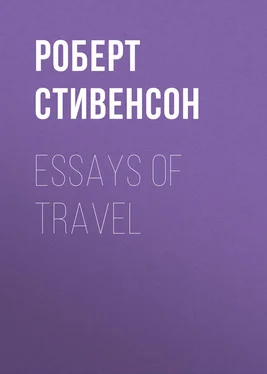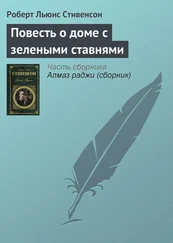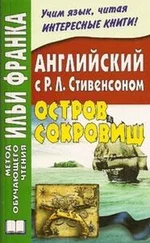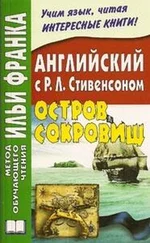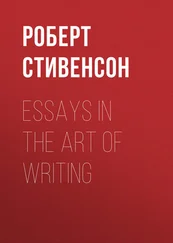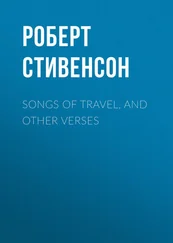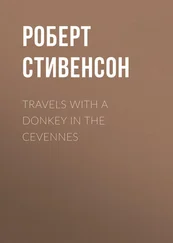Роберт Стивенсон - Essays of Travel
Здесь есть возможность читать онлайн «Роберт Стивенсон - Essays of Travel» — ознакомительный отрывок электронной книги совершенно бесплатно, а после прочтения отрывка купить полную версию. В некоторых случаях можно слушать аудио, скачать через торрент в формате fb2 и присутствует краткое содержание. Жанр: literature_19, foreign_antique, foreign_prose, Путешествия и география, на английском языке. Описание произведения, (предисловие) а так же отзывы посетителей доступны на портале библиотеки ЛибКат.
- Название:Essays of Travel
- Автор:
- Жанр:
- Год:неизвестен
- ISBN:нет данных
- Рейтинг книги:3 / 5. Голосов: 1
-
Избранное:Добавить в избранное
- Отзывы:
-
Ваша оценка:
- 60
- 1
- 2
- 3
- 4
- 5
Essays of Travel: краткое содержание, описание и аннотация
Предлагаем к чтению аннотацию, описание, краткое содержание или предисловие (зависит от того, что написал сам автор книги «Essays of Travel»). Если вы не нашли необходимую информацию о книге — напишите в комментариях, мы постараемся отыскать её.
Essays of Travel — читать онлайн ознакомительный отрывок
Ниже представлен текст книги, разбитый по страницам. Система сохранения места последней прочитанной страницы, позволяет с удобством читать онлайн бесплатно книгу «Essays of Travel», без необходимости каждый раз заново искать на чём Вы остановились. Поставьте закладку, и сможете в любой момент перейти на страницу, на которой закончили чтение.
Интервал:
Закладка:
Robert Louis Stevenson
Essays of Travel
I.
THE AMATEUR EMIGRANT
Our friendship was not only founded before we were born by a community of blood, but is in itself near as old as my life. It began with our early ages, and, like a history, has been continued to the present time. Although we may not be old in the world, we are old to each other, having so long been intimates. We are now widely separated, a great sea and continent intervening; but memory, like care, mounts into iron ships and rides post behind the horseman. Neither time nor space nor enmity can conquer old affection; and as I dedicate these sketches, it is not to you only, but to all in the old country, that I send the greeting of my heart.
R.L.S.1879.
THE SECOND CABIN
I first encountered my fellow-passengers on the Broomielaw in Glasgow. Thence we descended the Clyde in no familiar spirit, but looking askance on each other as on possible enemies. A few Scandinavians, who had already grown acquainted on the North Sea, were friendly and voluble over their long pipes; but among English speakers distance and suspicion reigned supreme. The sun was soon overclouded, the wind freshened and grew sharp as we continued to descend the widening estuary; and with the falling temperature the gloom among the passengers increased. Two of the women wept. Any one who had come aboard might have supposed we were all absconding from the law. There was scarce a word interchanged, and no common sentiment but that of cold united us, until at length, having touched at Greenock, a pointing arm and a rush to the starboard now announced that our ocean steamer was in sight. There she lay in mid-river, at the Tail of the Bank, her sea-signal flying: a wall of bulwark, a street of white deck-houses, an aspiring forest of spars, larger than a church, and soon to be as populous as many an incorporated town in the land to which she was to bear us.
I was not, in truth, a steerage passenger. Although anxious to see the worst of emigrant life, I had some work to finish on the voyage, and was advised to go by the second cabin, where at least I should have a table at command. The advice was excellent; but to understand the choice, and what I gained, some outline of the internal disposition of the ship will first be necessary. In her very nose is Steerage No. 1, down two pair of stairs. A little abaft, another companion, labelled Steerage No. 2 and 3, gives admission to three galleries, two running forward towards Steerage No. 1, and the third aft towards the engines. The starboard forward gallery is the second cabin. Away abaft the engines and below the officers’ cabins, to complete our survey of the vessel, there is yet a third nest of steerages, labelled 4 and 5. The second cabin, to return, is thus a modified oasis in the very heart of the steerages. Through the thin partition you can hear the steerage passengers being sick, the rattle of tin dishes as they sit at meals, the varied accents in which they converse, the crying of their children terrified by this new experience, or the clean flat smack of the parental hand in chastisement.
There are, however, many advantages for the inhabitant of this strip. He does not require to bring his own bedding or dishes, but finds berths and a table completely if somewhat roughly furnished. He enjoys a distinct superiority in diet; but this, strange to say, differs not only on different ships, but on the same ship according as her head is to the east or west. In my own experience, the principal difference between our table and that of the true steerage passenger was the table itself, and the crockery plates from which we ate. But lest I should show myself ungrateful, let me recapitulate every advantage. At breakfast we had a choice between tea and coffee for beverage; a choice not easy to make, the two were so surprisingly alike. I found that I could sleep after the coffee and lay awake after the tea, which is proof conclusive of some chemical disparity; and even by the palate I could distinguish a smack of snuff in the former from a flavour of boiling and dish-cloths in the second. As a matter of fact, I have seen passengers, after many sips, still doubting which had been supplied them. In the way of eatables at the same meal we were gloriously favoured; for in addition to porridge, which was common to all, we had Irish stew, sometimes a bit of fish, and sometimes rissoles. The dinner of soup, roast fresh beef, boiled salt junk, and potatoes, was, I believe, exactly common to the steerage and the second cabin; only I have heard it rumoured that our potatoes were of a superior brand; and twice a week, on pudding-days, instead of duff, we had a saddle-bag filled with currants under the name of a plum-pudding. At tea we were served with some broken meat from the saloon; sometimes in the comparatively elegant form of spare patties or rissoles; but as a general thing mere chicken-bones and flakes of fish, neither hot nor cold. If these were not the scrapings of plates their looks belied them sorely; yet we were all too hungry to be proud, and fell to these leavings greedily. These, the bread, which was excellent, and the soup and porridge which were both good, formed my whole diet throughout the voyage; so that except for the broken meat and the convenience of a table I might as well have been in the steerage outright. Had they given me porridge again in the evening, I should have been perfectly contented with the fare. As it was, with a few biscuits and some whisky and water before turning in, I kept my body going and my spirits up to the mark.
The last particular in which the second cabin passenger remarkably stands ahead of his brother of the steerage is one altogether of sentiment. In the steerage there are males and females; in the second cabin ladies and gentlemen. For some time after I came aboard I thought I was only a male; but in the course of a voyage of discovery between decks, I came on a brass plate, and learned that I was still a gentleman. Nobody knew it, of course. I was lost in the crowd of males and females, and rigorously confined to the same quarter of the deck. Who could tell whether I housed on the port or starboard side of steerage No. 2 and 3? And it was only there that my superiority became practical; everywhere else I was incognito, moving among my inferiors with simplicity, not so much as a swagger to indicate that I was a gentleman after all, and had broken meat to tea. Still, I was like one with a patent of nobility in a drawer at home; and when I felt out of spirits I could go down and refresh myself with a look of that brass plate.
For all these advantages I paid but two guineas. Six guineas is the steerage fare; eight that by the second cabin; and when you remember that the steerage passenger must supply bedding and dishes, and, in five cases out of ten, either brings some dainties with him, or privately pays the steward for extra rations, the difference in price becomes almost nominal. Air comparatively fit to breathe, food comparatively varied, and the satisfaction of being still privately a gentleman, may thus be had almost for the asking. Two of my fellow-passengers in the second cabin had already made the passage by the cheaper fare, and declared it was an experiment not to be repeated. As I go on to tell about my steerage friends, the reader will perceive that they were not alone in their opinion. Out of ten with whom I was more or less intimate, I am sure not fewer than five vowed, if they returned, to travel second cabin; and all who had left their wives behind them assured me they would go without the comfort of their presence until they could afford to bring them by saloon.
Our party in the second cabin was not perhaps the most interesting on board.
Читать дальшеИнтервал:
Закладка:
Похожие книги на «Essays of Travel»
Представляем Вашему вниманию похожие книги на «Essays of Travel» списком для выбора. Мы отобрали схожую по названию и смыслу литературу в надежде предоставить читателям больше вариантов отыскать новые, интересные, ещё непрочитанные произведения.
Обсуждение, отзывы о книге «Essays of Travel» и просто собственные мнения читателей. Оставьте ваши комментарии, напишите, что Вы думаете о произведении, его смысле или главных героях. Укажите что конкретно понравилось, а что нет, и почему Вы так считаете.
